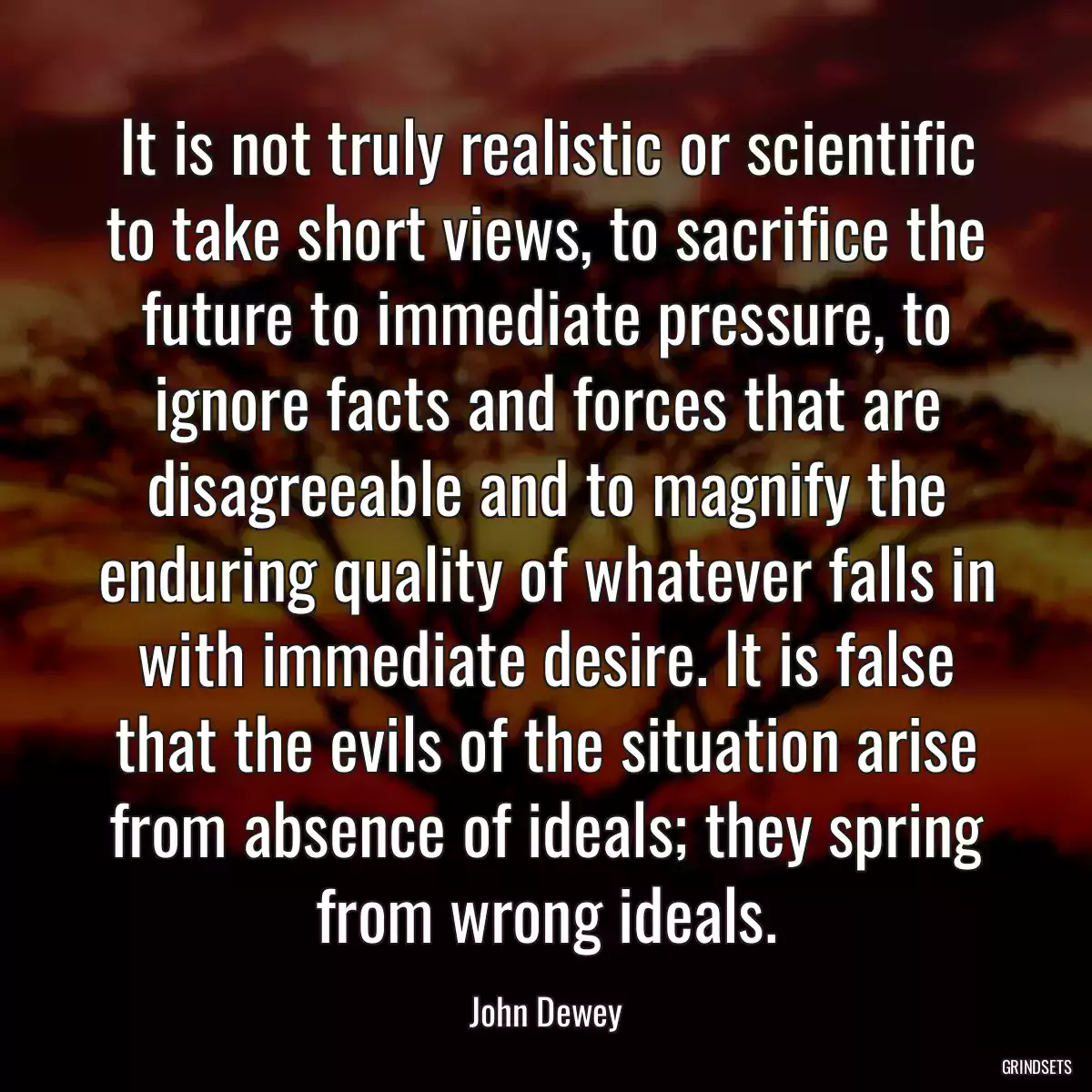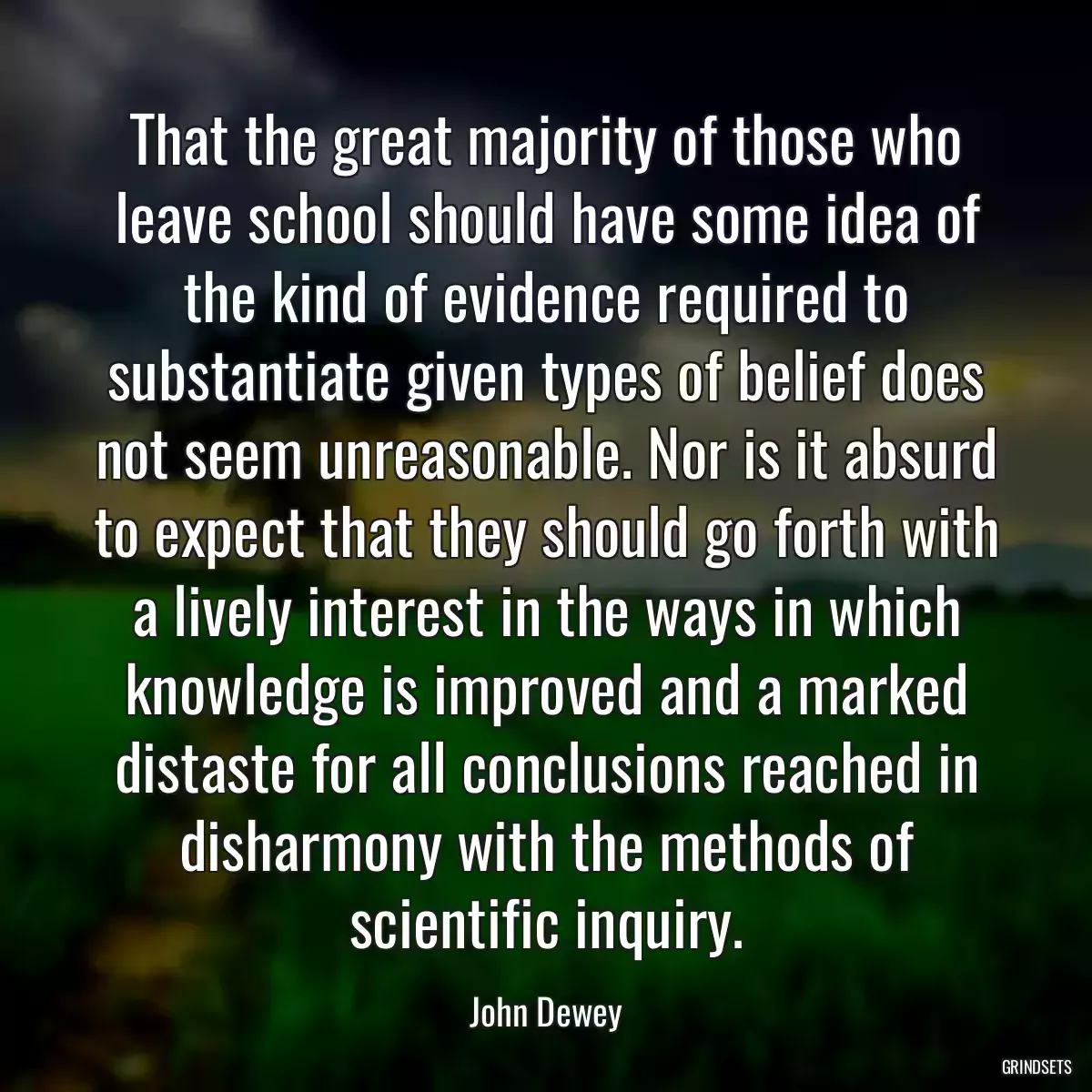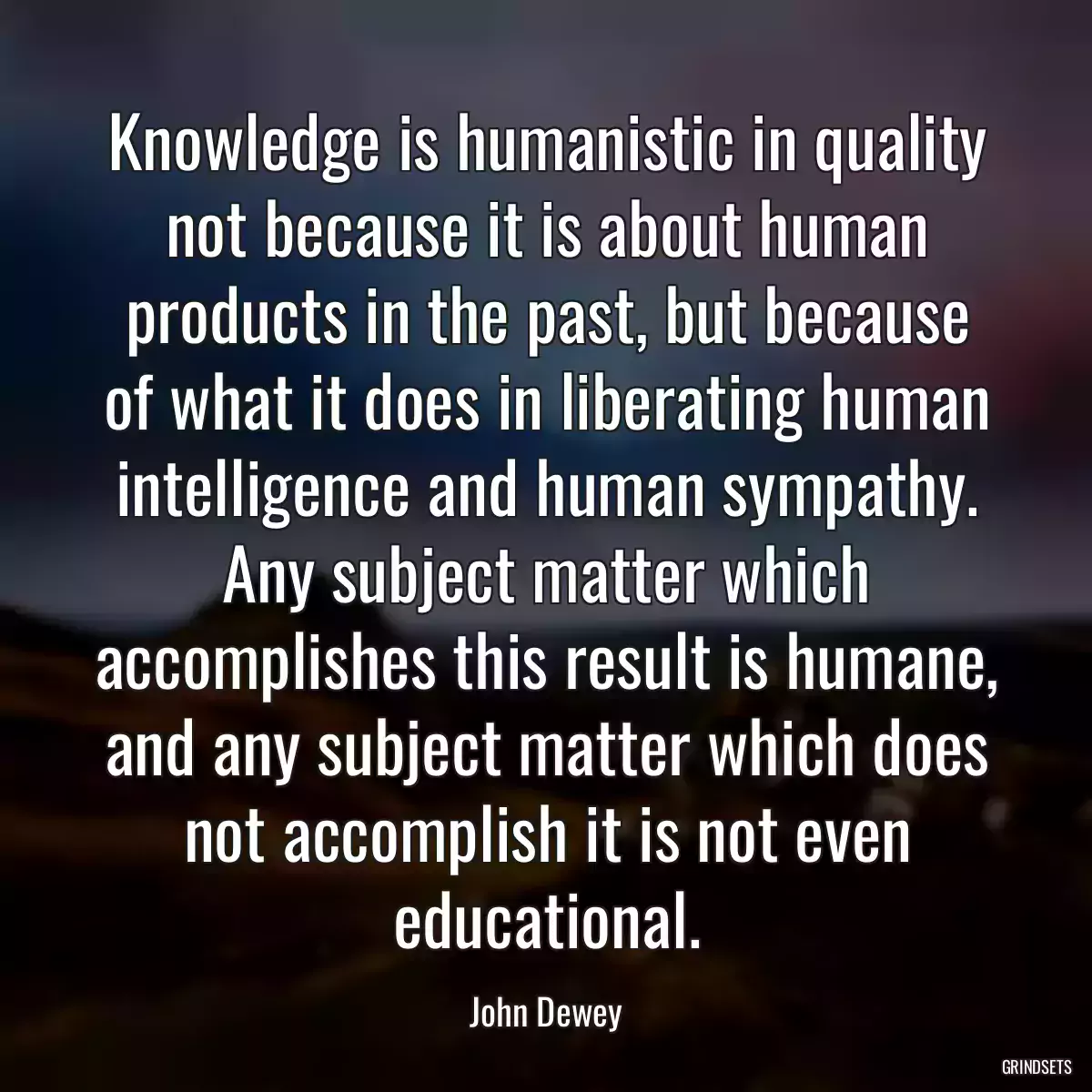
It is not truly realistic or scientific to take short views, to sacrifice the future to immediate pressure, to ignore facts and forces that are disagreeable and to magnify the enduring quality of whatever falls in with immediate desire. It is false that the evils of the situation arise from absence of ideals; they spring from wrong ideals.

